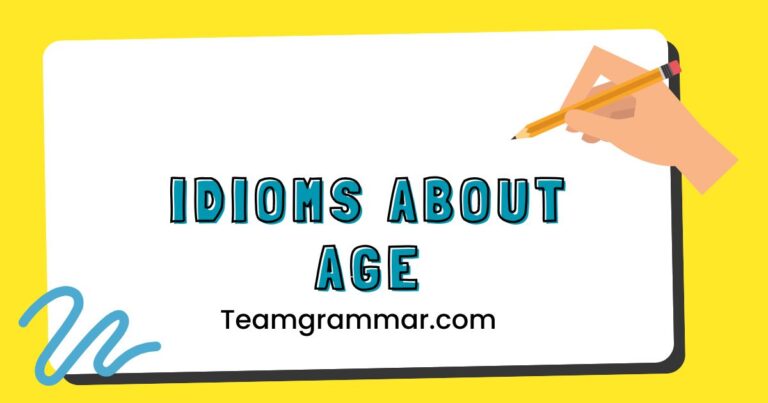47 Winter Idioms: Mastering Seasonal Expressions in English
Winter, with its snow, cold, and unique atmosphere, has inspired a wealth of idioms in the English language. Understanding these idioms is crucial for mastering nuanced communication and comprehending native speakers.
This article delves into the fascinating world of winter idioms, providing definitions, examples, and practical exercises. This guide is perfect for English language learners of all levels, from beginners seeking to expand their vocabulary to advanced speakers aiming to refine their understanding of idiomatic expressions.
By the end of this article, you’ll be well-equipped to use winter idioms confidently and accurately.
Table of Contents
- Introduction
- Definition of Idioms
- Structural Breakdown of Idioms
- Types and Categories of Winter Idioms
- General Winter Idioms
- Idioms About Cold
- Idioms About Snow
- Idioms About Holidays
- Examples of Winter Idioms
- Usage Rules for Winter Idioms
- Common Mistakes with Winter Idioms
- Practice Exercises
- Advanced Topics in Winter Idioms
- Frequently Asked Questions
- Conclusion
Definition of Idioms
An idiom is a phrase or expression whose meaning cannot be understood from the literal meanings of its individual words. Instead, idioms have a figurative meaning that is culturally specific and often arises from historical context.
They add color and depth to language, making communication more engaging and expressive. Idioms are a crucial part of understanding any language, and English is particularly rich in them.
Mastering idioms allows you to understand the subtleties of communication and connect with native speakers on a deeper level.
Idioms are classified asnon-compositional, meaning the overall meaning is not a direct sum of the individual word meanings. Their function within a sentence can vary; they can act as nouns, verbs, adjectives, or adverbs, depending on the specific idiom and its context.
The context in which an idiom is used is crucial for correct interpretation. The same phrase can have different meanings in different situations, so understanding the surrounding words and the overall tone is essential.
Structural Breakdown of Idioms
Idioms defy typical grammatical rules because their meaning is not derived from their structure. However, analyzing their structural components can still be helpful in understanding how they function within a sentence.
Many idioms follow common sentence patterns, even though their overall meaning is figurative. For example, an idiom might have a subject, verb, and object, but these elements contribute to the idiomatic meaning rather than a literal one.
The structural elements of an idiom often contribute to its memorability. The rhythm, rhyme, or alliteration within an idiom can make it easier to remember and use correctly.
For example, the idiom “snowed under” is easy to recall because of its simple and direct structure. Recognizing common structural patterns can also help learners identify and understand new idioms more quickly.
Pay attention to how the words are arranged and how they interact to create the figurative meaning.
Types and Categories of Winter Idioms
Winter idioms can be categorized based on the specific aspect of winter they relate to. This categorization helps in understanding the nuances of each idiom and using them appropriately.
Here are some key categories:
General Winter Idioms
These idioms capture the overall feeling or experience of winter. They might not be specific to cold, snow, or holidays, but rather evoke the general atmosphere of the season.
Idioms About Cold
These idioms focus on the experience of being cold, or the effects of cold weather. They often convey feelings of discomfort, hardship, or emotional coldness.
Idioms About Snow
These idioms use snow as a metaphor for various situations or emotions. They can represent purity, isolation, being overwhelmed, or something unexpected.
Idioms About Holidays
These idioms are related to the holiday season that falls during winter, such as Christmas or New Year’s. They often convey feelings of joy, celebration, or tradition.
Examples of Winter Idioms
Understanding winter idioms requires seeing them in context. The following tables provide examples of each category, along with their meanings and example sentences.
General Winter Idioms Examples
The following table provides 25 examples of general winter idioms, along with their meanings and example sentences for context.
| Idiom | Meaning | Example Sentence |
|---|---|---|
| Snowed under | Overwhelmed with too much to do | I’m completely snowed under with work this week. |
| The dead of winter | The coldest and darkest part of winter | We decided to travel to the islands during the dead of winter. |
| A cold day in July | Something that will never happen | He’ll apologize when it’s a cold day in July. |
| To break the ice | To make people feel more comfortable | The party games helped to break the ice between the guests. |
| Walking on thin ice | Being in a risky or dangerous situation | He’s walking on thin ice after missing so many deadlines. |
| A winter wonderland | A beautiful, snow-covered landscape | The town was transformed into a winter wonderland after the heavy snowfall. |
| Put something on ice. | To postpone or delay something. | The company decided to put the project on ice until next year. |
| Left out in the cold | Ignored or excluded | She felt left out in the cold when her friends went to the movies without her. |
| As pure as the driven snow | Completely innocent or virtuous | She is as pure as the driven snow. |
| Chill out | Relax and calm down | After a long day at work, I just want to chill out at home. |
| Cold comfort | Slight or inadequate consolation | His apology was cold comfort after the damage he had caused. |
| Nip something in the bud | To stop something at an early stage | The teacher nipped the argument in the bud before it escalated. |
| A snowball effect | A situation where something increases rapidly | The small investment had a snowball effect and grew into a significant profit. |
| Frozen stiff | Extremely cold and unable to move | After waiting outside for an hour, we were frozen stiff. |
| Give someone the cold shoulder | To deliberately ignore someone | She gave him the cold shoulder after their argument. |
| Run hot and cold | To alternate between two opinions or feelings | He runs hot and cold about the idea of moving to a new city. |
| Out cold | Unconscious | After the accident, he was out cold for several minutes. |
| Break out in a cold sweat | To become very nervous or anxious | He broke out in a cold sweat before his presentation. |
| In the cold light of day | When considering something rationally, without emotions | In the cold light of day, we realized the plan was unrealistic. |
| Cold feet | To become nervous or scared before an important event | He almost got cold feet before walking down the aisle. |
| As cold as ice | Emotionally distant and uncaring | Her heart was as cold as ice. |
| To be left out in the cold | To be ignored or excluded | She felt left out in the cold when they didn’t invite her. |
| To get cold feet | To become afraid to do something | He almost got cold feet before his big performance. |
| A snowball’s chance in hell | Almost no chance of success | He doesn’t have a snowball’s chance in hell of winning the election. |
| A cold fish | Someone who is unemotional and unfriendly | He is a cold fish, never showing any emotion. |
Idioms About Cold Examples
The following table provides 25 examples of idioms specifically about cold, along with their meanings and example sentences.
| Idiom | Meaning | Example Sentence |
|---|---|---|
| Catch a cold | To become ill with a common cold | I think I’m starting to catch a cold. |
| Cold-hearted | Lacking in sympathy or feeling | The villain in the story was a cold-hearted character. |
| Cold shoulder | Deliberately ignoring someone | She gave him the cold shoulder after their argument. |
| Cold sweat | Sweat caused by fear or anxiety | He broke out in a cold sweat before his presentation. |
| Cold turkey | Abruptly stopping an addiction | He decided to quit smoking cold turkey. |
| In cold blood | Without feeling or remorse | The crime was committed in cold blood. |
| Turn cold | To lose interest or affection | Their relationship started to turn cold after a few months. |
| Cold call | Making an unsolicited phone call to someone | He made a cold call to a potential client. |
| A cold case | An unsolved criminal investigation | The detective reopened the cold case after new evidence emerged. |
| Cold storage | Keeping something for future use | The company put the project in cold storage due to budget cuts. |
| Cold as ice | Emotionally detached and unfriendly | She was cold as ice towards her ex-boyfriend. |
| Give someone the third degree | To interrogate someone intensely | The police gave him the third degree about the robbery. |
| Get wind of something | To hear a rumor or piece of information | I got wind of the new project from a colleague. |
| A breeze | Something easy to do | The exam was a breeze. |
| Come in from the cold | To be accepted into a group or organization after being excluded | After years of being an outsider, he was finally brought in from the cold. |
| A chilling effect | Discouraging free speech or expression | The new law had a chilling effect on journalistic freedom. |
| To be left out in the cold | To be ignored or excluded | She felt left out in the cold when her friends didn’t invite her to the party. |
| Cold comfort | Slight or inadequate consolation | His apology was cold comfort after the damage he caused. |
| Run hot and cold | To alternate between two opinions or feelings | He runs hot and cold about the new job offer. |
| Out cold | Unconscious | He was out cold after the accident. |
| To freeze up | To become unable to move or act due to fear or nervousness | She froze up on stage during her performance. |
| To give someone the cold shoulder | To deliberately ignore someone | She gave him the cold shoulder after their argument. |
| Cold feet | To become nervous or scared just before an important event | He almost got cold feet before walking down the aisle. |
| To nip something in the bud | To stop something at an early stage | The teacher nipped the argument in the bud before it escalated. |
| To break the ice | To make people feel more comfortable | The party games helped to break the ice between the guests. |
Idioms About Snow Examples
The following table provides 25 examples of idioms related to snow, along with their meanings and example sentences for context.
| Idiom | Meaning | Example Sentence |
|---|---|---|
| As pure as the driven snow | Completely innocent or virtuous | She is as pure as the driven snow. |
| Snowed under | Overwhelmed with too much to do | I’m snowed under with paperwork this week. |
| Snowball effect | A situation where something increases rapidly | The small investment had a snowball effect and grew into a large profit. |
| Snow job | An attempt to deceive someone with flattery or exaggeration | He tried to give me a snow job about why he was late. |
| Snowball’s chance in hell | Almost no chance of success | He doesn’t have a snowball’s chance in hell of winning the competition. |
| White as snow | Very pale or white | Her hair was white as snow. |
| A blanket of snow | A layer of snow covering everything | A blanket of snow covered the entire town. |
| Snowdrift | A bank of snow piled up by the wind | The car was stuck in a snowdrift. |
| Snowbird | A person who migrates to a warmer climate for the winter | Many snowbirds travel to Florida every year. |
| Snowflake | A unique and delicate individual (often used negatively) | Some people criticize the younger generation as being too sensitive “snowflakes“. |
| Snow day | A day when school is cancelled due to heavy snow | The kids were excited to hear that it was a snow day. |
| Snowplow | A vehicle used to clear snow from roads | The snowplow worked all night to keep the roads open. |
| Snowsuit | A warm, insulated suit worn in snowy conditions | The child was bundled up in a thick snowsuit. |
| Snow angel | A figure made in the snow by lying on your back and moving your arms and legs | The children were making snow angels in the backyard. |
| Snowball fight | A playful fight using snowballs | They had a fun snowball fight in the park. |
| To be snowed in | To be trapped indoors due to heavy snowfall | We were snowed in for three days during the blizzard. |
| To shovel snow | To clear snow using a shovel | He spent the morning shoveling snow from the driveway. |
| Snow blindness | Temporary blindness caused by the glare of sunlight on snow | Hikers in snowy conditions need to wear sunglasses to prevent snow blindness. |
| First snow | The first snowfall of the season | The first snow is always magical. |
| Snow tires | Tires designed to provide better traction in snowy conditions | He put snow tires on his car before winter. |
| Powder snow | Light, fluffy snow that is ideal for skiing | Skiers love to ski on powder snow. |
| Snowfall warning | An official alert for heavy snowfall | The weather service issued a snowfall warning for the region. |
| Snow-capped | Covered with snow on top (usually mountains) | The snow-capped mountains were a beautiful sight. |
| Snowmobile | A motorized vehicle used for traveling on snow | They went for a ride on a snowmobile through the forest. |
| Snow brush | A brush used to remove snow from a car | He used a snow brush to clear off his car. |
Idioms About Holidays Examples
The following table provides 20 examples of idioms related to the winter holidays, along with their meanings and example sentences for context.
| Idiom | Meaning | Example Sentence |
|---|---|---|
| Deck the halls | To decorate a place for Christmas | We’re going to deck the halls this weekend. |
| Christmas came early | An unexpected gift or good fortune | When I got the promotion, it felt like Christmas came early. |
| In the spirit of Christmas | Being generous and kind, as is traditional during Christmas | In the spirit of Christmas, we donated to a local charity. |
| Christmas cheer | The joyful and festive mood of Christmas | The town was filled with Christmas cheer. |
| Trim the tree | To decorate a Christmas tree | The family gathered to trim the tree. |
| Like turkeys voting for Christmas | Agreeing to something that will harm you | Voting for those policies is like turkeys voting for Christmas. |
| The more the merrier | The more people there are, the better | “Can I bring a friend?” “Of course, the more the merrier!” |
| Ring in the New Year | To celebrate the start of a new year | We’re going to ring in the New Year with a party. |
| New Year’s resolution | A promise to change a behavior or achieve a goal in the new year | My New Year’s resolution is to exercise more. |
| Good tidings | Good news or greetings, especially during the holiday season | We wish you good tidings for the new year. |
| Holiday blues | Feelings of sadness or depression during the holiday season | She was experiencing the holiday blues after being away from family. |
| Beating the holiday rush | Avoiding the crowds and stress of holiday shopping | We started our shopping early to beat the holiday rush. |
| Holiday spirit | The feeling of joy, generosity, and goodwill associated with holidays | The decorations put everyone in the holiday spirit. |
| Gift-wrapped | Decoratively wrapped as a present | The presents were beautifully gift-wrapped. |
| Stuffing your face | Eating a large amount of food | Everyone was stuffing their face at the Christmas dinner. |
| Like a kid in a candy store | Very excited and delighted | He was like a kid in a candy store when he saw all the presents. |
| White Christmas | A Christmas with snow on the ground | Everyone dreams of having a white Christmas. |
| Bundle up | To dress warmly in many layers | You should bundle up before going outside in the cold. |
| Peace on Earth | A wish for global harmony and goodwill, often associated with Christmas | We hope for peace on Earth during the holiday season. |
| Eat, drink, and be merry | Enjoy oneself and celebrate | During the holidays, it’s a time to eat, drink, and be merry. |
Usage Rules for Winter Idioms
Using idioms correctly involves understanding their specific context and avoiding literal interpretations. Here are some key rules to keep in mind:
- Context is Key: Always consider the context in which the idiom is used. The surrounding words and the overall tone will help you understand its meaning.
- Avoid Literal Interpretations: Remember that idioms have a figurative meaning, not a literal one. Don’t try to understand them by analyzing the individual words.
- Grammatical Structure: While the meaning is figurative, idioms still need to fit grammatically within the sentence. Make sure the idiom agrees with the subject and verb.
- Audience Awareness: Be mindful of your audience. Some idioms might not be appropriate for formal settings or for use with non-native speakers.
- Practice: The best way to master idioms is through practice. Read and listen to English as much as possible, and pay attention to how native speakers use idioms.
Understanding the nuances of each idiom is crucial to using them correctly. For instance, “snowed under” means being overwhelmed with work, not literally covered in snow.
Similarly, “walking on thin ice” means being in a risky situation, not actually walking on a frozen lake. Pay close attention to these subtle differences to avoid miscommunication.
Common Mistakes with Winter Idioms
One of the most common mistakes is interpreting idioms literally. This can lead to confusion and miscommunication.
Another common error is using idioms in the wrong context or with the wrong audience. It’s also important to avoid misusing the grammatical structure of an idiom.
Here are some examples of common mistakes and how to correct them:
| Incorrect | Correct | Explanation |
|---|---|---|
| I am under the snow with work. | I am snowed under with work. | “Snowed under” is the correct idiom for being overwhelmed. |
| He gave me a cold shoulder’s arm. | He gave me the cold shoulder. | The idiom is “cold shoulder,” not “cold shoulder’s arm.” |
| She has a snow chance in hell of winning. | She has a snowball’s chance in hell of winning. | The correct idiom is “snowball’s chance in hell.” |
| Let’s decorate the walls for Christmas. | Let’s deck the halls for Christmas. | “Deck the halls” is the specific idiom for decorating for Christmas. |
| He is walking in thin waters. | He is walking on thin ice. | The correct idiom is “walking on thin ice,” meaning being in a risky situation. |
It’s also important to be aware of regional variations in idioms. Some idioms might be more common in certain parts of the English-speaking world than others.
When in doubt, it’s always best to err on the side of caution and use more straightforward language.
Practice Exercises
Test your understanding of winter idioms with these practice exercises. Choose the correct idiom to complete each sentence or identify the meaning of the idiom in context.
Exercise 1: Fill in the Blanks
Complete the following sentences with the appropriate winter idiom from the list below.
Idiom List: snowed under, cold shoulder, break the ice, walking on thin ice, cold feet
| Question | Answer |
|---|---|
| 1. I have so much work to do; I’m completely __________. | snowed under |
| 2. She gave him the __________ after their argument. | cold shoulder |
| 3. Let’s play a game to __________ at the party. | break the ice |
| 4. He’s __________ after missing so many deadlines. | walking on thin ice |
| 5. He almost got __________ before his big performance. | cold feet |
| 6. The student was __________ with assignments before the holidays. | snowed under |
| 7. After their disagreement, she decided to give him the __________. | cold shoulder |
| 8. We played a few icebreaker games to __________ at the conference. | break the ice |
| 9. By not following safety protocols, he was __________. | walking on thin ice |
| 10. She almost got __________ before skydiving. | cold feet |
Exercise 2: Multiple Choice
Choose the correct meaning of the idiom in each sentence.
| Question | Options | Answer |
|---|---|---|
| 1. Getting that promotion felt like Christmas came early. | a) It was a cold day in July. b) An unexpected gift or good fortune. c) The dead of winter. | b) An unexpected gift or good fortune. |
| 2. He’s been giving me the cold shoulder all day. | a) He’s been very friendly. b) He’s been deliberately ignoring me. c) He’s been very cold. | b) He’s been deliberately ignoring me. |
| 3. The project was put on ice due to budget constraints. | a) The project was frozen solid. b) The project was postponed. c) The project was completed quickly. | b) The project was postponed. |
| 4. She had a snowball’s chance in hell of winning the race. | a) She had a very good chance. b) She had almost no chance. c) She had a chance if it snowed. | b) She had almost no chance. |
| 5. He decided to quit smoking cold turkey. | a) He quit during the winter. b) He quit gradually. c) He quit abruptly. | c) He quit abruptly. |
| 6. They decided to deck the halls for the holidays. | a) They cleaned the hallways. b) They decorated the place. c) They left the halls bare. | b) They decorated the place. |
| 7. After the argument, she was left out in the cold. | a) She felt very cold. b) She felt ignored and excluded. c) She went outside in the snow. | b) She felt ignored and excluded. |
| 8. His apology was cold comfort after the damage he caused. | a) His apology was very comforting. b) His apology was inadequate consolation. c) His apology was heartfelt. | b) His apology was inadequate consolation. |
| 9. He broke out in a cold sweat before the presentation. | a) He felt very cold. b) He became nervous and anxious. c) He started shivering. | b) He became nervous and anxious. |
| 10. He’s walking on thin ice with his boss. | a) He’s in a risky situation. b) He’s enjoying a winter walk. c) He’s very cautious. | a) He’s in a risky situation. |
Advanced Topics in Winter Idioms
For advanced learners, exploring the etymology and historical context of winter idioms can provide a deeper understanding of their meaning and usage. Many idioms have roots in historical events, cultural practices, or literary references.
Understanding these origins can help you appreciate the richness and complexity of the English language.
Another advanced topic is the use of idioms in literature and creative writing. Authors often use idioms to add color, depth, and authenticity to their writing.
Analyzing how idioms are used in different literary works can enhance your understanding of their nuances and improve your own writing skills. Pay attention to how authors adapt or subvert idioms to create unique effects.
Frequently Asked Questions
- What is an idiom?
An idiom is a phrase or expression whose meaning cannot be understood from the literal meanings of its individual words. It has a figurative meaning that is culturally specific.
- Why are idioms important to learn?
Idioms are crucial for understanding nuanced communication and connecting with native speakers on a deeper level. They add color and depth to language and are commonly used in everyday conversations.
- How can I learn idioms effectively?
Read and listen to English as much as possible, pay attention to how native speakers use idioms, and practice using them in your own speech and writing. Context is key to understanding their meaning.
- What is the difference between a literal and a figurative meaning?
A literal meaning is the direct, dictionary definition of a word or phrase. A figurative meaning is a symbolic or metaphorical meaning that goes beyond the literal definition.
- Can I use idioms in formal writing?
It depends on the context. Some idioms are appropriate for formal writing, while others are more informal. Consider your audience and the overall tone of your writing before using an idiom.
- Are idioms the same in all English-speaking countries?
No, there can be regional variations in idioms. Some idioms might be more common in certain parts of the English-speaking world than others.
- What should I do if I don’t understand an idiom?
Ask for clarification. Don’t be afraid to ask a native speaker to explain the meaning of an idiom you don’t understand. You can also look it up in a dictionary or online resource.
- How can I avoid misusing idioms?
Pay attention to the context in which the idiom is used, avoid literal interpretations, and practice using them correctly. If you’re unsure, it’s always best to err on the side of caution.
- Is it okay to translate idioms directly from my native language?
No, idioms are often culturally specific and don’t translate directly. A direct translation can lead to confusion or miscommunication.
- Are there any resources that can help me learn idioms?
Yes, there are many dictionaries, websites, and apps that can help you learn idioms. Look for resources that provide definitions, examples, and practice exercises.
- What is the best way to remember idioms?
Use them
. Incorporate them into your daily conversations and writing. The more you use them, the easier they will be to remember.
- Why do idioms exist?
Idioms develop over time through cultural and historical contexts. They add richness and expressiveness to language, allowing speakers to convey complex ideas in a concise and memorable way.
- Can idioms change over time?
Yes, idioms can evolve or fade away as language changes. New idioms can also emerge to reflect contemporary culture and experiences.
- How do I know if I’m using an idiom correctly?
Check the context and ensure it aligns with the idiom’s intended meaning. If possible, get feedback from native speakers to confirm you’re using it appropriately.
- Are there different types of idioms?
Yes, idioms can be categorized based on their grammatical structure (e.g., phrasal verbs, proverbs) or thematic content (e.g., idioms about weather, emotions, or relationships).
Conclusion
Mastering winter idioms can greatly enhance your English language skills and enable you to communicate more effectively and expressively. By understanding the definitions, usage rules, and common mistakes associated with these idioms, you can confidently incorporate them into your everyday conversations and writing.
Remember to practice regularly and pay attention to the context in which idioms are used. With dedication and effort, you’ll be well-equipped to navigate the nuanced world of winter idioms and connect with native speakers on a deeper level.
So, embrace the challenge, enjoy the process, and watch your language skills flourish!







